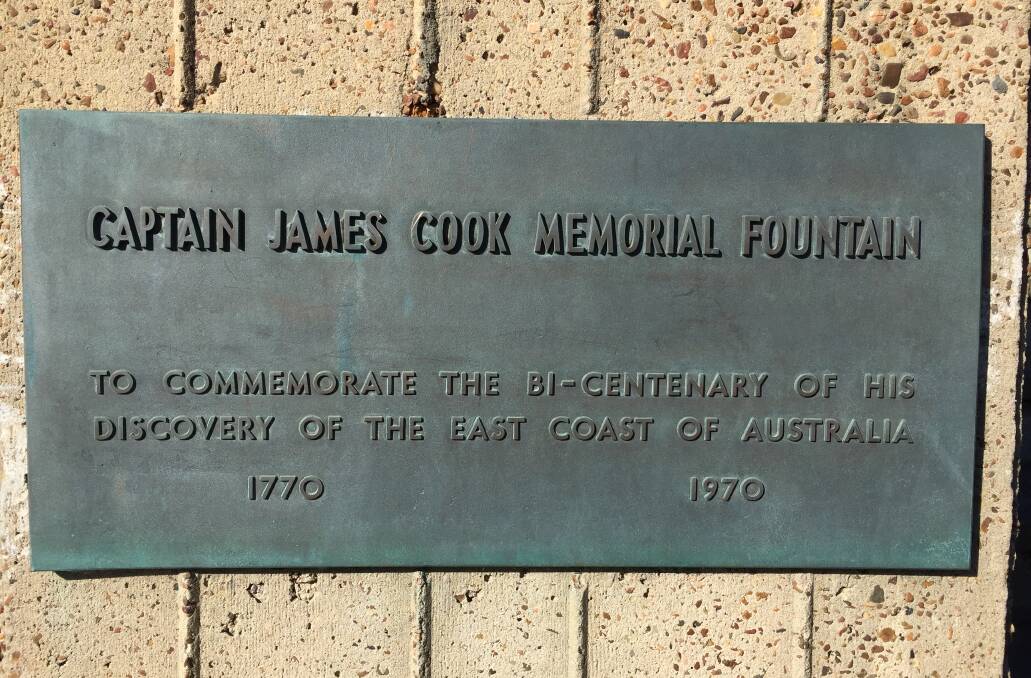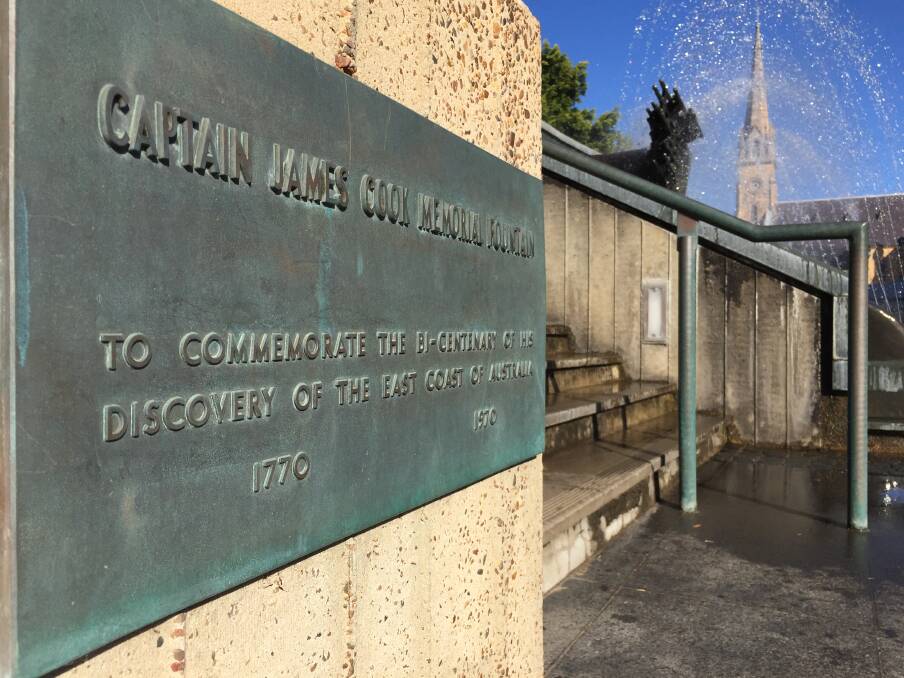
City of Newcastle will create a policy for reviewing place names and signs which offend indigenous people, including two plaques in Civic Park which proclaim Captain Cook's "discovery" of the east coast in 1770.
Subscribe now for unlimited access.
$0/
(min cost $0)
or signup to continue reading
The council voted on Tuesday to consult its Guraki indigenous affairs committee and the wider community about removing the Civic Park fountain plaques and how to deal with other names which may no longer meet community standards.
The decision followed a debate which ruminated on the meaning of "discovery" and whether one councillor could be said to have "discovered" pistachio ice cream.
Labor councillor Carol Duncan said reviewing place and building names was part of an international conversation about the power of words to cause harm.
"It's not a new thing that the names of buildings and places have been changed. We don't refer to Uluru as Ayers Rock any more because we know better," she said.
Cr Duncan also referred to Canadian food giant Saputo announcing this week that it would change the name of Australia's Coon cheese brand, named after its founder, in light of the word's racist connotations.

Government and school authorities in England and America are reviewing the names of buildings and landmarks if those names are associated with the slave trade, and Dunedin's 152-year-old Captain Cook Hotel is changing its name over the explorer's impact on the Maori.
Cr Peta Winney-Baartz (Labor) said the council should consult broadly about name changes and avoid "tokenistic" or "reactionary" responses which did not promote greater understanding.
Independent Allan Robinson, who is indigenous, said the debate was "embarrassing" and did not reflect the views of Aboriginal people.
"To all the people I have dealings with that are Aboriginal or Torres Strait Islander, I don't see any of this," he said.
" ... To think to be so shallow and to be scared of a name 'discovered', I can't believe we're even discussing it."
The Civic Park plaques, one of which has been forcibly removed by a member of the public, name the fountain after Captain Cook and "commemorate the bi-centenary of his discovery of the east coast of Australia."
Liberal councillor Brad Luke said the debate revolved around a "twisted" understanding of what the word "discovery" meant.
He said the plaques did not suggest Cook was the "first person ever" to know about Australia's east coast.
"That's not what the word means at all," he said, referring to various dictionary definitions.
"It's learning something you did not previously know ... In the context of the English, he brought prominence to it. They didn't know about it before.
"Did he discover it on behalf of the indigenous people of Australia? No, of course not. They knew about it a long time before."

But Greens councillor John Mackenzie, who had moved to immediately remove the plaques, took issue with Cr Luke's interpretation.
"James Cook did discover the east coast of Australia in the strictly personal and limited sense that Cr Luke describes, in much the same way that earlier this year I discovered pistachio ice cream," he said.
"Now, it's perfectly correct to say that in 2020 I discovered pistachio ice cream, but, if I was to erect a monument to 'Cr John Mackenzie, who discovered pistachio ice cream in 2020', I think you'd find that a little bit misleading.
" ... The fact is we're not talking about the random use of the word 'discovery'. We're talking about a monument which has been erected and is part of the public sphere.
"Cook did not discover the east coast of Australia. That's very clear. Why do we have a monument in our public domain commemorating an event which did not take place ... history has rendered this interpretation of history null and void."
He said the "lie" of Cook's discovery had been used continually to exclude indigenous people from the story of Australia.
"It's offensive, and it has no place in a modern, contemporary society."


